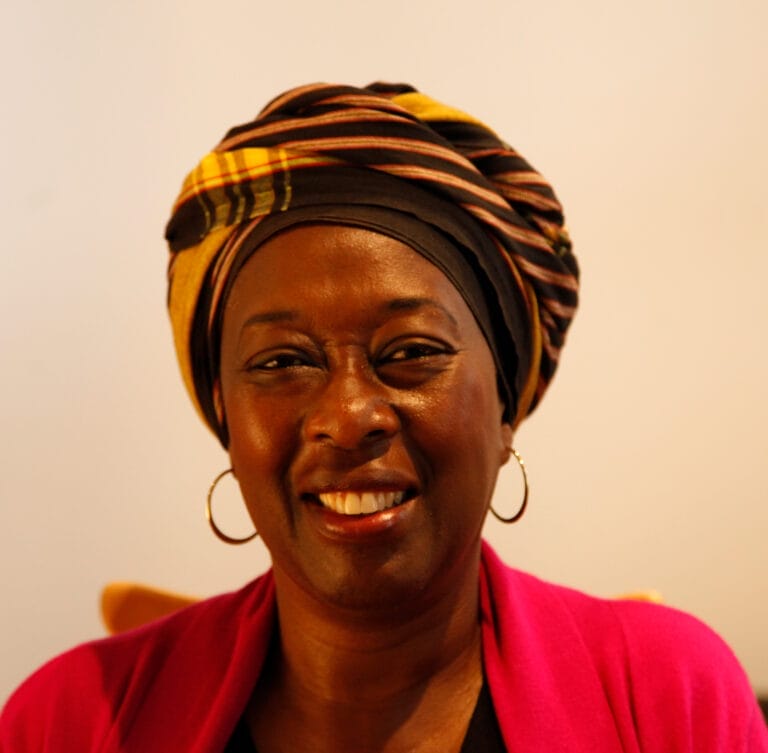In a world saturated with stories, few creators capture the layered realities of African life, its myths, injustices, beauty, and resilience quite like Yaba Badoe. A Ghanaian-British documentary filmmaker, journalist, and acclaimed author, Badoe has spent decades giving voice to African and diasporic narratives through both lens and literature.
Her career is marked by a fearless commitment to truth-telling, artistic depth, and cultural authenticity, making her one of the most impactful storytellers of her generation.
Early Roots and Global Education
Born in 1954 in Tamale, northern Ghana, Yaba Badoe’s journey took her from West Africa to the United Kingdom at a young age. She studied at King’s College, Cambridge, one of the most prestigious academic institutions in the world. Despite her elite education, she remained grounded in her cultural roots and returned to Ghana to work with the Ministry of Foreign Affairs.
Her curiosity and sense of justice soon led her into journalism, and she began training at the BBC. From there, her career took on an international scope, teaching in Ghana, Spain, and Jamaica, while deepening her engagement with African arts and cultural documentation.
Filmmaking: A Tool for Justice and Memory
Badoe’s documentaries are more than visual records, they are tools of advocacy, historical correction, and gender justice. Her work often focuses on the lives of African women and the cultural systems that shape and sometimes oppress them.
Her landmark documentary The Witches of Gambaga (2010) tells the story of women accused of witchcraft and exiled to isolated communities in northern Ghana. The film received international acclaim, winning Best Documentary at the Black International Film Festival and a FESPACO prize in 2011.
In The Art of Ama Ata Aidoo (2014), Badoe turned the camera toward one of Ghana’s greatest feminist writers, creating an intimate portrait of the author’s political and literary legacy. The film remains a vital archive of one of Africa’s most important voices.
Earlier in her career, Badoe produced documentaries like Black and White (1987), a BAFTA-nominated exploration of race in Britain, and I Want Your Sex (1991), which dissected Western portrayals of Black sexuality. Her work is unflinching, often uncomfortable, but always rooted in truth.
Literary Voice: Fiction Rooted in Cultural Memory
Badoe’s literary contributions are as powerful as her documentaries. Her debut novel, True Murder (2009), explores the dislocation of a Ghanaian girl in a British boarding school. It set the stage for her future work: writing that is sharp, imaginative, and grounded in African experience.
Her young adult novel A Jigsaw of Fire and Stars (2017) weaves myth, migration, and magic, earning a Branford Boase Award nomination and longlisting for the CILIP Carnegie Medal. Other works such as Wolf Light (2019), Lionheart Girl (2021), and Man-Man and the Tree of Memories (2023) reflect her rich fusion of African folklore and speculative fiction.
Badoe also contributes short stories to important anthologies, including New Daughters of Africa, further cementing her role in shaping African literary heritage.
Champion of African Women’s Voices
What defines Yaba Badoe’s work is her steadfast dedication to centering African women. Whether she’s documenting the lives of Ghanaian women accused of witchcraft or crafting magical realist tales of young African girls coming of age, she is always amplifying voices long silenced by colonial histories, patriarchy, or systemic neglect.
Her storytelling is deeply political yet elegantly poetic. It invites both global audiences and African communities to engage with urgent truths without exoticizing or oversimplifying.
Legacy and Ongoing Influence
Today, Badoe continues to write and direct from her base in London. Her documentaries are studied in universities, her books are translated into multiple languages, and her voice remains vital in discussions around race, gender, and African identity.
She has been recognized by organizations and awards across film and literature. Her work bridges continents, genres, and generations and she remains an essential cultural figure in reimagining African narratives on a global scale.
Yaba Badoe is not just a storyteller, she is a guardian of memory, a challenger of silence, and a visionary for Africa’s cultural future. Through her words and images, she ensures that African women’s stories are not only told but heard, honored, and remembered.

